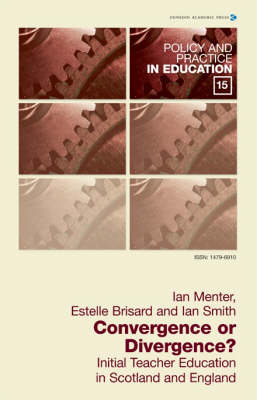Policy and Practice in Education
1 total work
This volume draws on a major study of initial teacher education and training (ITET) undertaken at the University of Paisley. It examines the key characteristics of ITET, including systems of governance, institutional arrangements, quality assurance processes, curriculum and assessment and the significance of ITET within national systems of education. Further themes are the professional context of ITET in Scotland and in England and the roles of key stakeholders such as the government, schools and local authorities. The significance of recent political, social and cultural identities and their influence on the development of ITET policy and practice are considered. Finally, the book looks at the ways in which ITET in these two countries is diverging, perhaps under the pressure of post-devolution nationalism, or converging, under the pressures of globalisation. As a considered analysis of complex research findings, this volume in the "Policy & Practice in Education" series will interest all those concerned with teacher education in Scotland and England.
It raises questions of globalisation in education policy which will appeal to education policy makers in other countries considering the enhancement and development of their own teacher education and training provision.
It raises questions of globalisation in education policy which will appeal to education policy makers in other countries considering the enhancement and development of their own teacher education and training provision.
